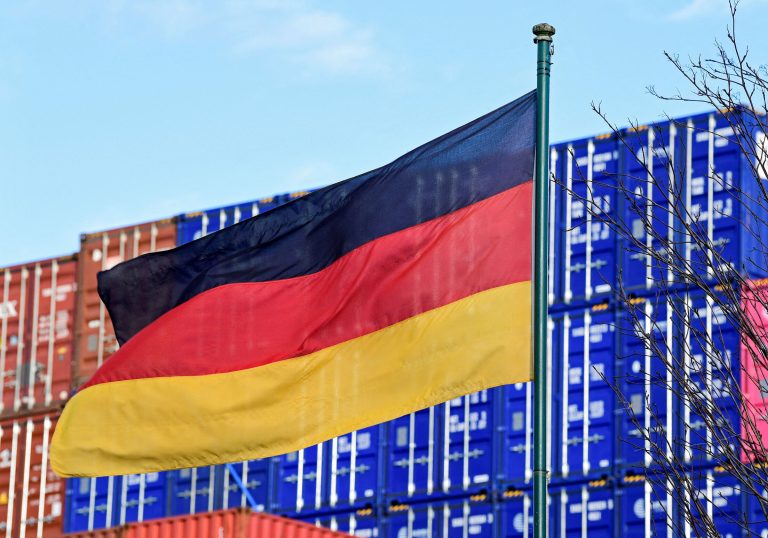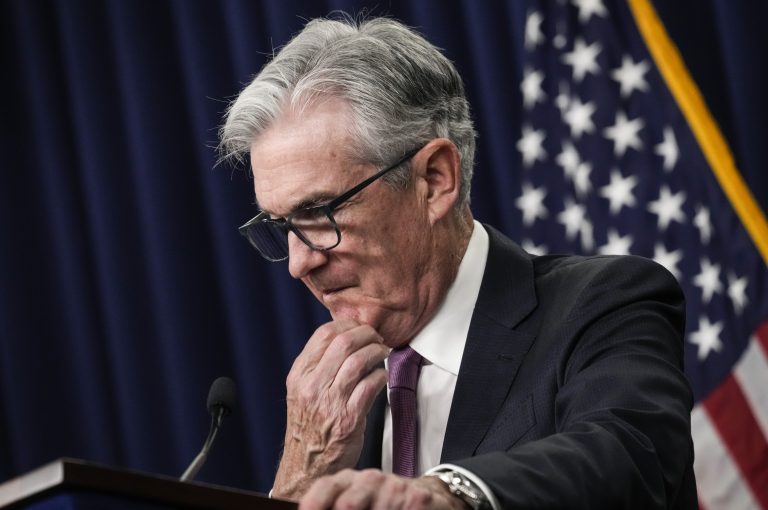Experts believe German foreign trade is shifting focus from China to the United States as economic and political factors all increasingly favor the U.S.-German relationship.
Belying this trend is the recent trip to the People’s Republic of China (PRC) by Germany’s economic minister and vice-chancellor Robert Habeck, who arrived on June 21 and left June 23. Habeck’s visit was intended to signal Berlin’s willingness to continue pursuing commercial ties with the PRC, while also making clear German policy objectives.
These aims include the European Union’s recent announcement of tariffs on Chinese electric vehicles, as well as allaying the risk of retaliation that could harm German export business there.
Already, Germany’s 60 billion euros (US$64 billion) of trade with China in the first quarter of 2024 was less than the 63-billion-euro total volume of U.S.-German trade.
- China Warns of Possible ‘Trade War’ With EU as Germany’s Vice-Chancellor Heads to Beijing
- ‘T-AI-WAN’: Nvidia’s Jensen Huang Talks Up Taiwan’s Artificial Intelligence Potential
- Quality, Safety Concerns of Chinese-made EVs Come to the Fore
That snapped a trend that has ranked China as Germany’s top trading partner for eight years in a row.
Success
You are now signed up for our newsletter
Success
Check your email to complete sign up
Official figures released on Friday, June 21, underlined the shift: German exports to the PRC fell 14 percent in May from a year ago while exports to the United States rose 4.1percent.
Currently China is facing a real estate crisis, high local government debt and other challenges that are depressing domestic Chinese economic activity.
This situation prompted some experts to suggest the country could face a period of stagnation similar to Japan’s “lost decades” starting in the 1990s.
German trading partners remained committed to a Chinese market they believed would see a recovery in the next few years, according to Maximilian Butek, executive director of the German Chamber of Commerce in East China.
“However, if confidence in the private sector and among consumers in China remains low, it is possible the United States will be able to establish itself as Germany’s leading trading partner,” he said of a possible consolidation of the U.S. lead.
The growth in German exports is already being dampened by the fact that China is moving up the value chain ladder, and producing more complex goods within its borders.
China was long a customer for German vehicles, machinery and pharmaceutical products.
Beyond signaling its desire to deepen ties with partners such as South Korea, Berlin so far has been vague on policy steps to reduce the actual dependencies.
Juergen Matthes, head of international economic policy at the German Economic Institute IW, saw the start of a paradigm shift away from the close China-Germany relationship.
Such a relationship was nurtured by former Chancellor Angela Merkel through the 2000s.
- Vladimir Putin Visits North Korea in Boost for Growing Alliance
- EU Follows US Lead By Slapping Tariffs on Chinese EVs, Sparking Retaliation Threats
“A reorientation — also geopolitically motivated — seems to be taking place: away from system rival China and towards transatlantic partner the United States,” he said.
If the United States will go on a more protectionist path by raising tariffs on imports from all destinations, then all bets would be off in what could escalate into a global trade war.
A report by consulting firm Roland Berger this month concluded that such a scenario would have a devastating effect on all major economies.
That would have the potential to split the planet into two mutually incompatible trading blocs, in what would be an extreme form of the global economic “fragmentation” that the International Monetary Fund has been warning of.
Roland Berger’s global managing partner, Stefan Schaible, added there was no doubt that Germany would have to choose its NATO ally: “Trump will force Europeans to decide on which side they want to be — with China or with the United States,” he said.
Reuters contributed to this report.







